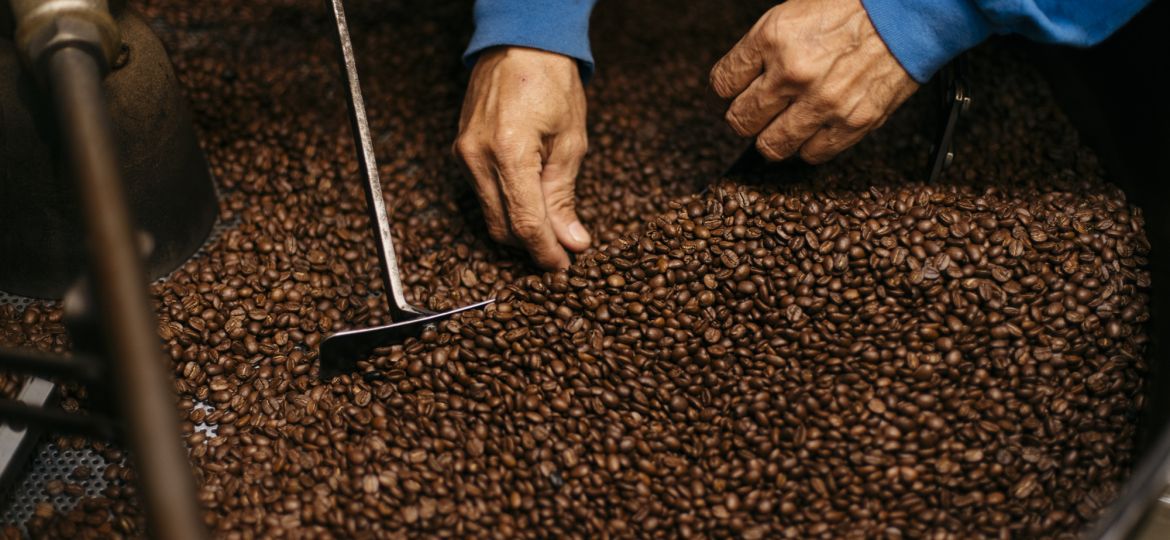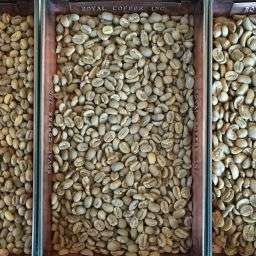
In recent years, the direct consumption of roasted coffee beans has garnered attention beyond traditional brewing methods. This practice, intriguing for its convenience and purported health benefits, marks a return to coffee’s most elemental form of enjoyment. As we delve into this topic, we’ll explore the historical context, nutritional benefits, and evolving preferences that have led to the resurgence of eating roasted coffee beans.
The History of Coffee Bean Consumption
The history of coffee is as rich and varied as its flavors. Legend has it that the energizing properties of coffee were first discovered by an Ethiopian goatherd named Kaldi. Noticing the invigorating effects the red berries had on his goats, Kaldi tried them himself, experiencing a newfound alertness.
This seminal event is believed to have sowed the seeds of coffee culture. Initially, coffee beans were consumed in their simplest form—raw or lightly roasted. Ethiopian hunters valued them for their ability to sustain energy and suppress hunger on long expeditions. Over time, the method of brewing coffee from beans spread across the world, evolving into the complex coffee culture we know today.
Health Benefits of Eating Coffee Beans
Roasted coffee beans are not only prized for their stimulating effect but are also rich in nutritional value. They are a potent source of antioxidants, which play a crucial role in combating oxidative stress and reducing the risk of chronic diseases.
Studies have highlighted coffee’s potential to protect against liver disease, including liver cancer, and to lower the risk of Parkinson’s disease, heart attack, stroke, and type 2 diabetes. The beans are also known for their content of essential nutrients like vitamin B2 (riboflavin), magnesium, and plant chemicals such as cafestol and kahweol, which contribute to their health-promoting properties.
Moreover, the act of eating coffee beans can offer a more concentrated source of benefits compared to drinking brewed coffee. For instance, antioxidants and caffeine are more potent in their undiluted form, providing an immediate energy boost and enhancing cognitive function. Regular consumption, within recommended limits, has been linked to improved liver health, cognitive enhancement, and a lower risk of several chronic conditions.
Potential Risks and Side Effects
While the consumption of roasted coffee beans can offer numerous health benefits, there are also potential risks and side effects to consider, particularly related to their caffeine content and acidity. Eating coffee beans delivers caffeine more efficiently to the bloodstream than drinking brewed coffee, potentially leading to effects such as insomnia, an increased heart rate, and digestive issues. The high concentration of caffeine can quickly lead to an overdose, with symptoms including nervousness, restlessness, and a jittery feeling.
Moreover, the acidic nature of coffee beans can exacerbate gastrointestinal issues. Individuals with sensitive stomachs or conditions like gastroesophageal reflux disease (GERD) may experience increased acid reflux and heartburn from consuming coffee beans. The beans’ acidity can upset the stomach’s balance, leading to discomfort and potentially deterring individuals from this form of coffee consumption.
Culinary Uses and Recipes
Despite these considerations, roasted coffee beans are a versatile ingredient in the culinary world. They can be consumed in various forms, ranging from simple, plain beans to more elaborate preparations like chocolate-covered espresso beans, espresso powder for baking, and even as a crunchy addition to desserts.
Chocolate-Covered Coffee Beans Recipe
One popular way to enjoy coffee beans is by making chocolate-covered coffee beans, a delightful treat that combines the richness of chocolate with the robust flavor of coffee. Here’s a simplified version of how to prepare them:
- Melt your choice of chocolate (dark, milk, or white) in a bowl set over simmering water or in short bursts in a microwave, stirring until smooth.
- Add roasted coffee beans to the melted chocolate, ensuring each bean is evenly coated.
- Using a fork, lift the beans out individually, letting excess chocolate drip off.
- Place the coated beans on a baking sheet lined with parchment paper.
- Refrigerate the chocolate-covered beans until the chocolate sets, about 1-2 hours.
This treat perfectly balances the bitterness of the coffee beans with the sweetness of the chocolate, making it a favorite among coffee enthusiasts and chocolate lovers alike.
FAQs
Can you eat coffee grounds?
Yes, coffee grounds can be consumed safely. They are known for being rich in antioxidants and nutrients, though they may present a gritty texture that’s not to everyone’s liking. Moderation is key, as with whole coffee beans, to avoid potential digestive discomfort.
How much caffeine is in a coffee bean compared to a cup of coffee?
A single coffee bean contains a concentrated amount of caffeine. For example, 28 chocolate-covered coffee beans have about 3.5 times the caffeine of a cup of black coffee. This difference is due to the entire caffeine content being ingested directly when eating the bean, whereas brewing extracts only part of the caffeine into the drink.
Are there any people who should avoid eating coffee beans?
Individuals sensitive to caffeine, pregnant women, and those with certain medical conditions (like acid reflux or insomnia) should exercise caution or avoid consuming coffee beans. The concentrated caffeine and acidic nature of coffee beans can exacerbate certain health issues.
Conclusion
In exploring the nuances of consuming roasted coffee beans, we’ve traversed from their historical origins to modern culinary applications, touching upon both the benefits and potential drawbacks. The key takeaway is the importance of moderation, given the concentrated caffeine and acidic properties of coffee beans.
For those intrigued by this traditional yet unconventional method of coffee consumption, experimenting with coffee beans in various forms can offer a new dimension to your coffee experience. Be mindful of the potential health impacts and enjoy the rich, multifaceted flavors that coffee beans have to offer.









